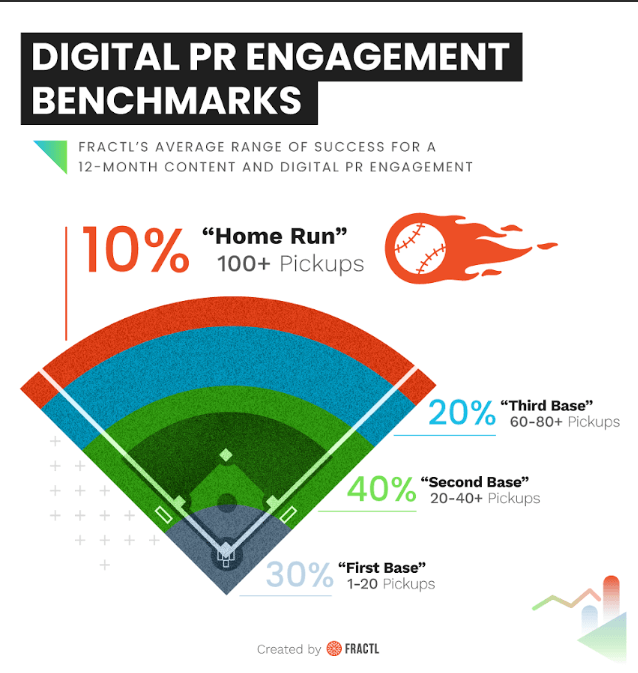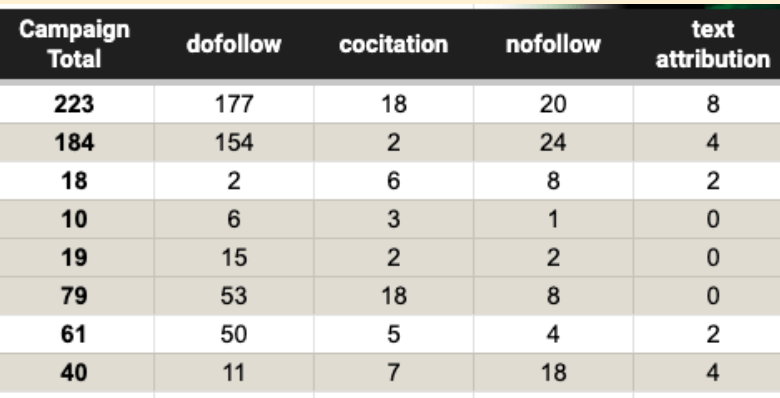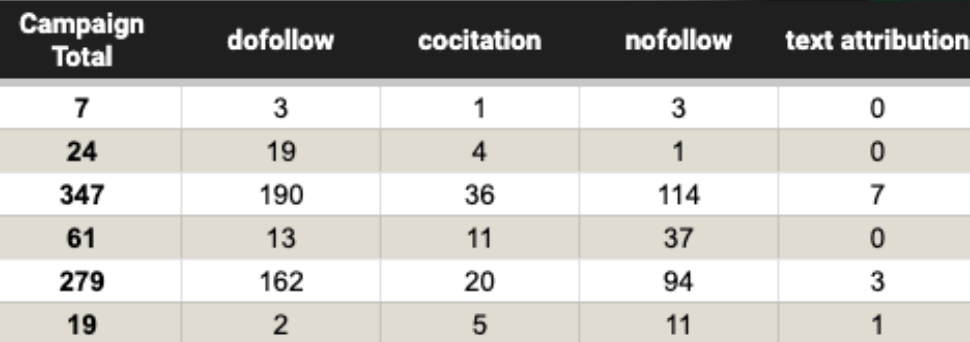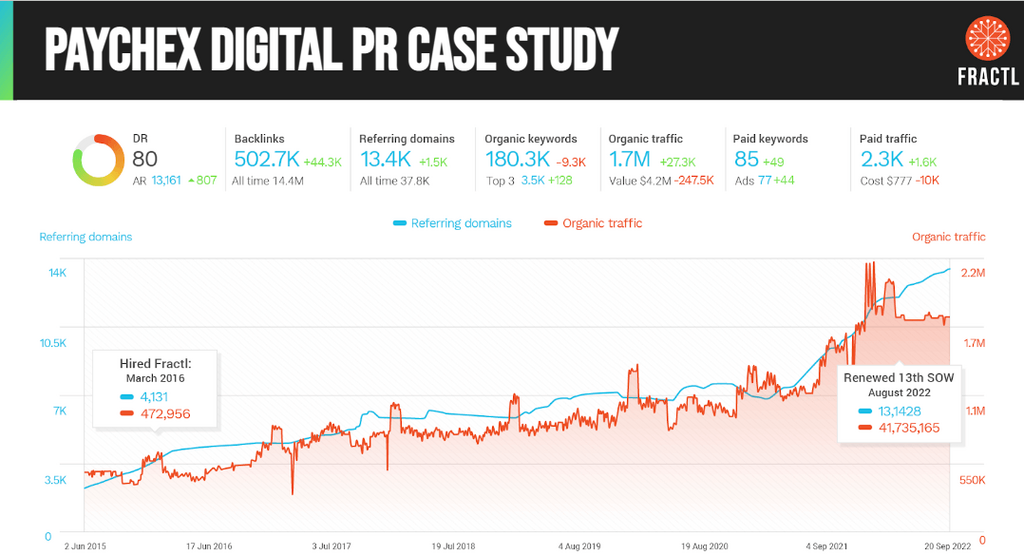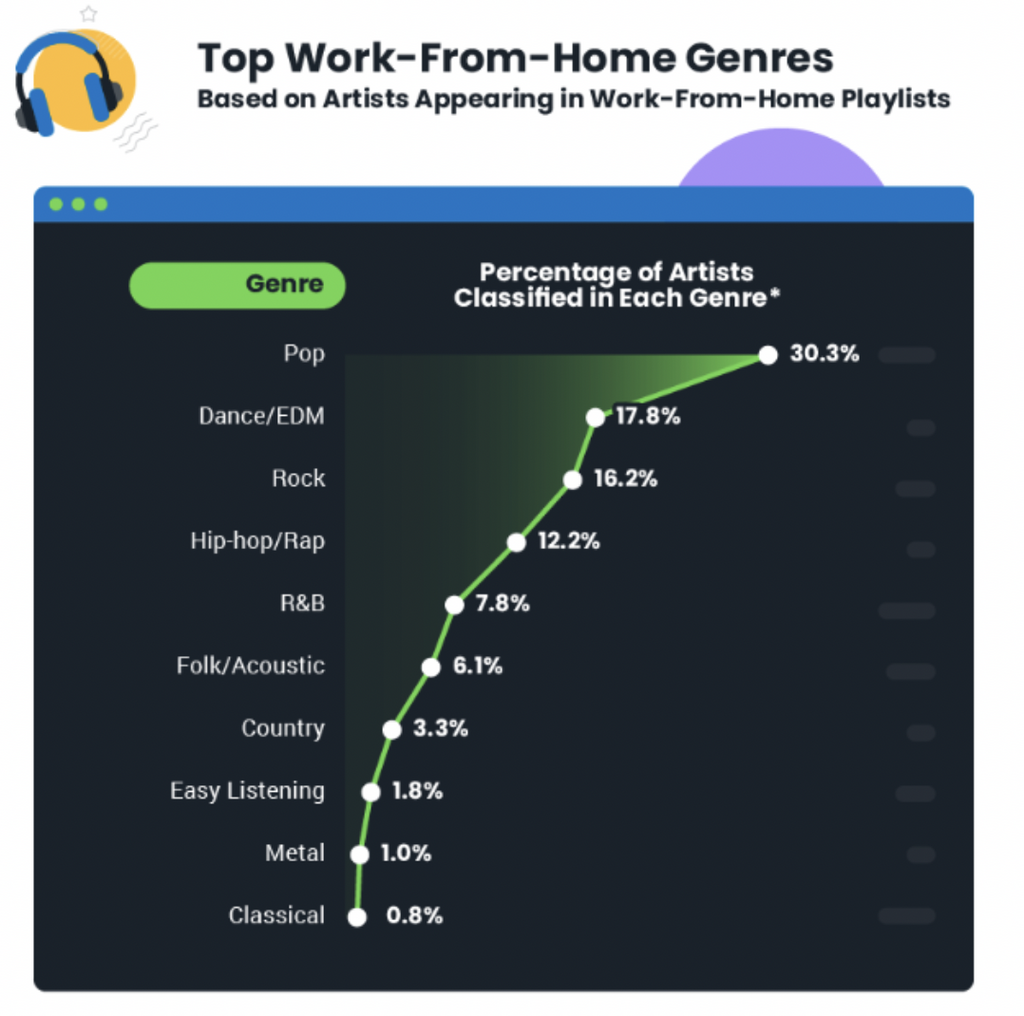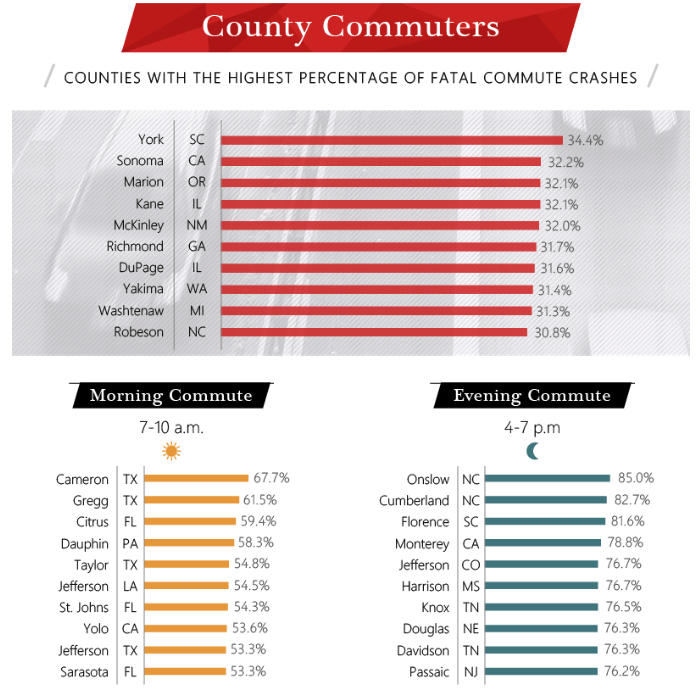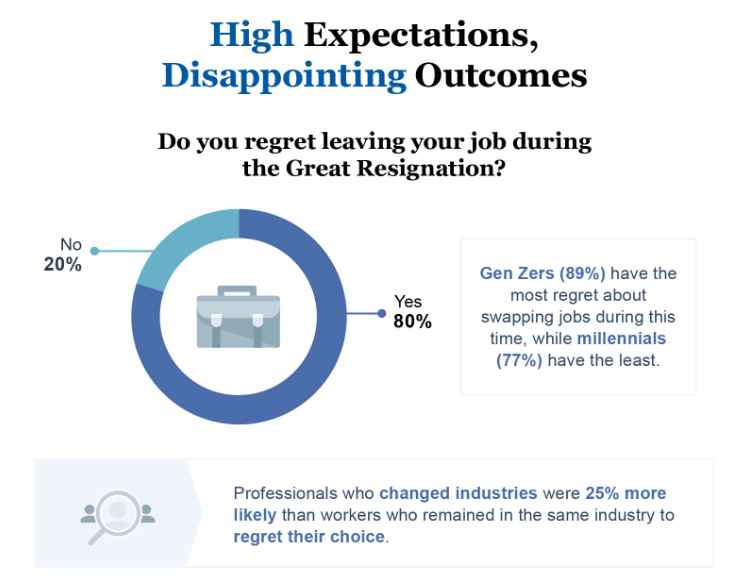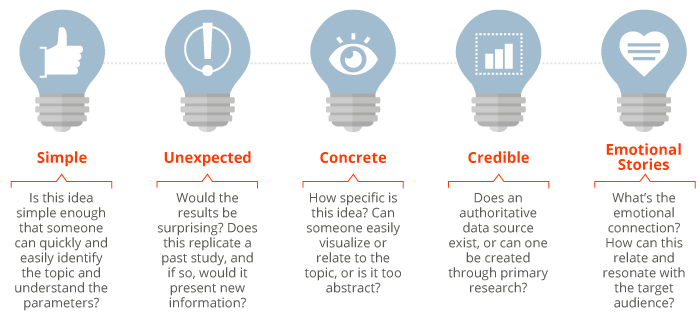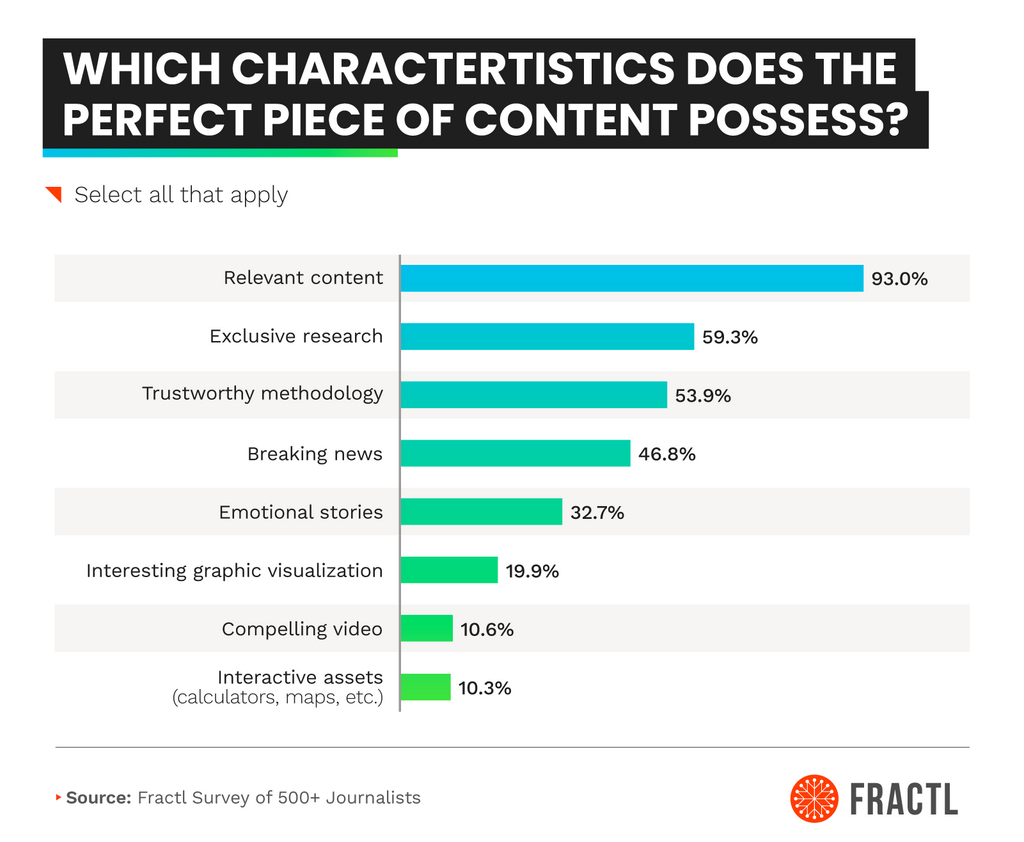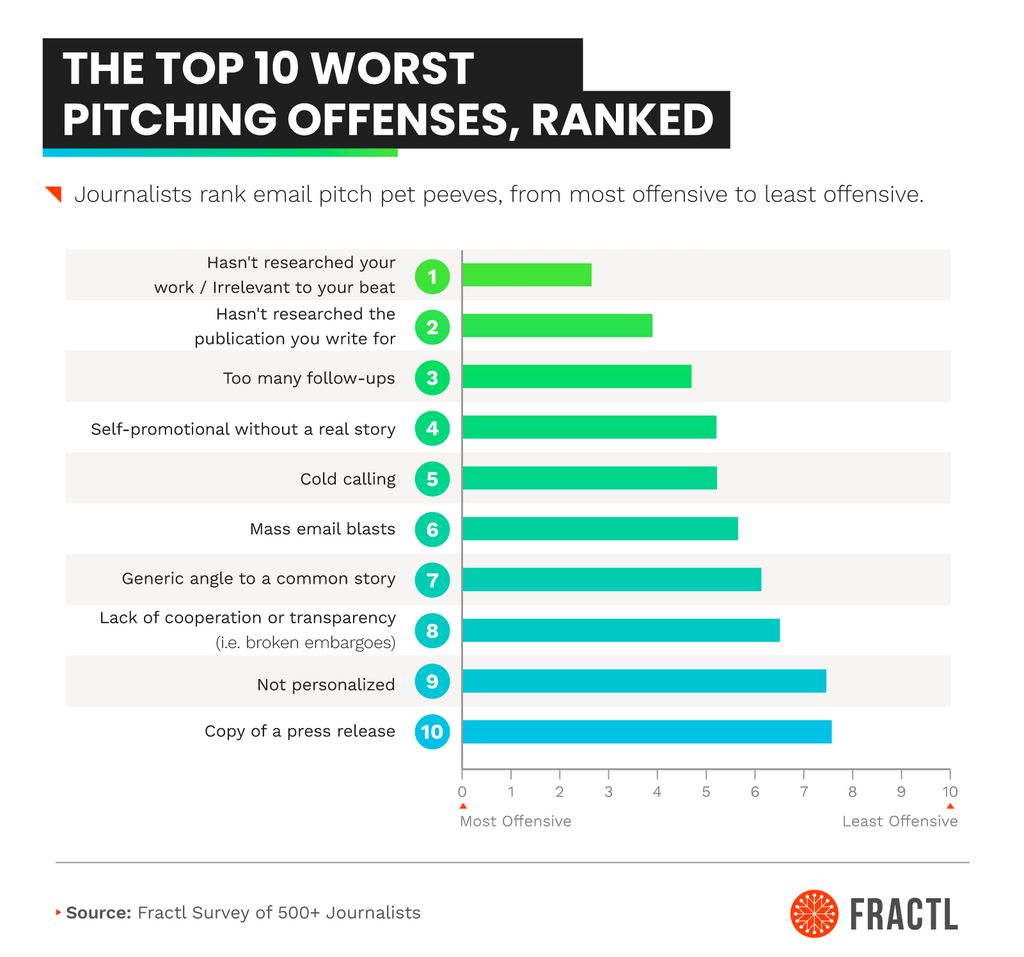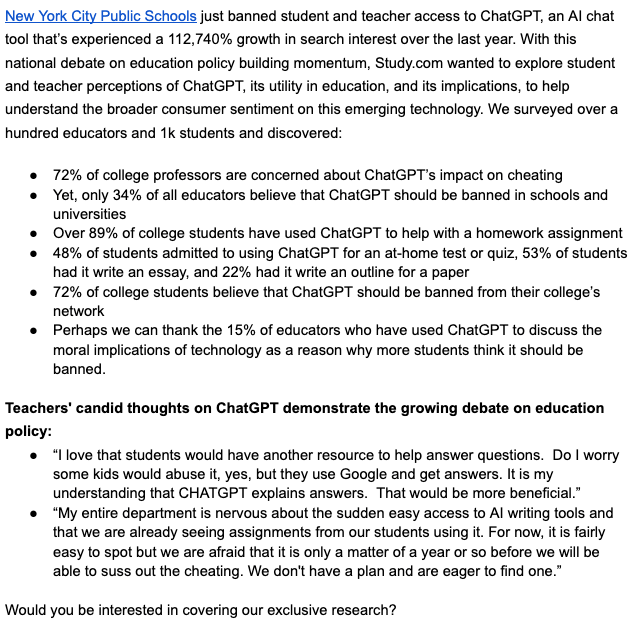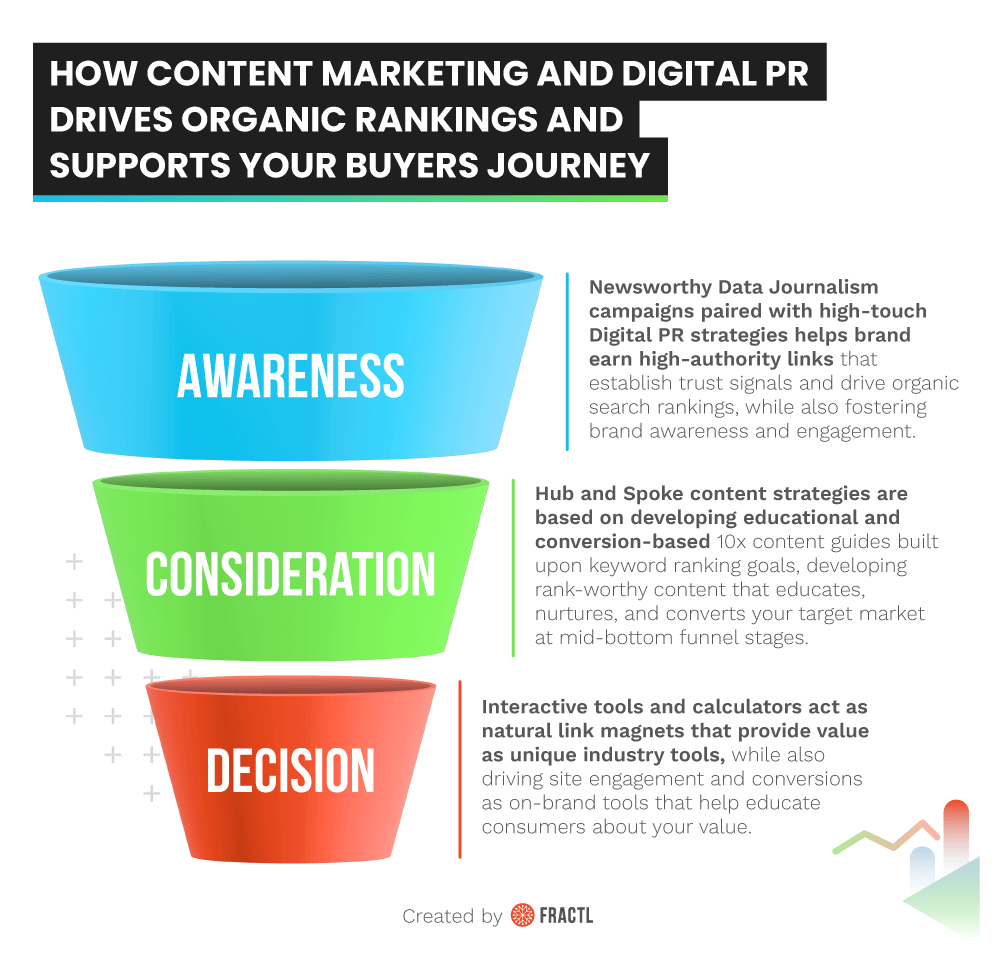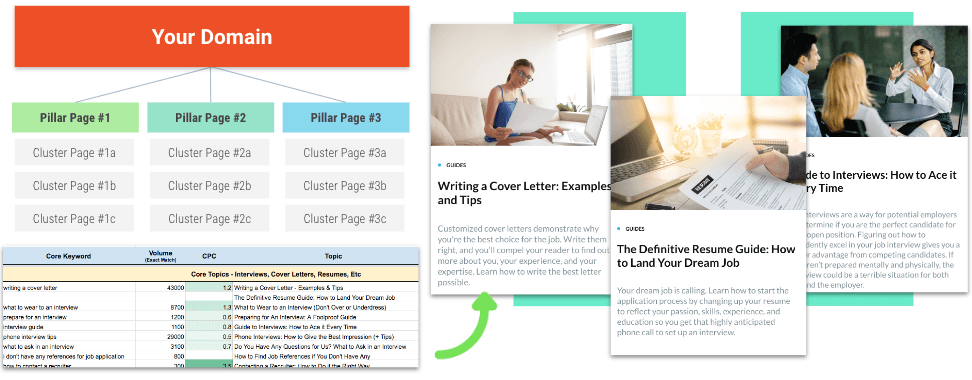I wholeheartedly agree with Patrick Stox: A singular viral marketing campaign isn’t going to drive consistent organic search growth.
What I’d like to shed light on is the statement that “SEOs may overvalue links from media sites. They really don’t seem to have much impact.”
Elusive, one-off viral marketing campaigns can help you earn media coverage and content syndication for years.
But, virality isn’t a perfect formula — consistent, quality execution is.
After producing over 5,000 Content Marketing campaigns in the last decade, my Co-Founders and I adopted the 80/20 principle to educate our clients: roughly 80% of your links will be driven by 20% of our campaigns.
However, while viral campaigns generate excitement, it’s the consistent base hits that drive site authority and organic search rankings.
Clear-cut examples of organic success from PR links
We’ve all seen agencies and individuals sharing their viral wins, but what type of results actually drive organic search rankings?
What benchmarks should you be aiming for and measuring your team against?
Here’s what our average “baseball field” looks like in real life for two recent client renewals in the lifestyle and technology verticals:
How to read those tables:
- Campaign total: Total amount of published stories that feature findings from our campaign
- Dofollow: Number of dofollow links back to our client’s site as a result of each campaign
- Cocitation: Number of stories that link to another story about our campaign
- Text Attribution: A publisher covered our story but didn’t link to our client’s site (yet)
By consistently earning high-authority publisher coverage and industry-relevant links, you can signal to Google that your site is a trusted authority in your vertical.
Beyond the SEO value, these content marketing campaigns also increase your brand awareness, authority, engagement, and conversions.
While clients in more niche and less competitive verticals can quickly establish their site authority by producing 6-12 PR link building campaigns over the course of a year, clients with larger budgets in more competitive verticals typically invest in building a defensible backlink portfolio that drives consistent growth over the course of several years.
In the example above, Paychex began working with Fractl in March 2016 and has renewed annually, producing over 40 campaigns that earned the following KPIs:
- 3,044 total backlinks
- 1,556 unique linking domains
- 1,107 dofollow links
- 29 .edu links
- 2 .gov links
Here’s a small sample of the links we earned on sites with a Domain Authoririty > 90:
- The New York Times
- Harvard Business Review
- Business Insider
- Vice
- Fortune
- Entrepreneur
- Money
- USA Today
- CBS News
- Computer World
- Washington Examiner
- Newsweek
- Statista
- Indeed
- Zdnet
- SHRM
- Tech Target
- The Guardian
- Biz Journals
- Motley Fool
- Globe and Mail
This resulted in 195% increase in organic traffic:
- March 2016: 608,460
- June 2023: 1,795,343
What other credible sources agree PR links are valuable?
The value of PR links is a never ending debate among SEOs, but I believe that debate is primarily rooted in whether the links you go after are:
- Earned consistently from high-authority and industry-relevant publishers, building domain trust signals ✅
- Purchased from link networks, resulting in your site being associated with spam ❌
- Purchased as one-off sponsored content features, providing lower link value and lacking consistency
While there are hundreds of studies and authorities who speak to these themes, these are my go-to third-party sources for understanding the value of how high-authority links drive organic search rankings:
John Mueller
“One good link from a big news site can be more impactful than millions of low-quality links.”
Eric Enge + Moz
“Obtaining links from more authoritative sites has more value than obtaining a large quantity of links.”
“Sites with better quality sites linking to them tend to be higher in rankings.”
Now that you understand the value of earning media links, let’s talk about how you can do it!
How to drive rankings by earning PR links
Step 1: Identify the research methodologies your team is capable of executing.
When we first launched Fractl in 2012, content marketing was in its infancy, with roughly 20k monthly global searches.
Nowadays, content marketing tops 210k searches per month!
Why should this influence your methodologies?
According to our digital PR research, 10 years ago, top-tier writers received upwards of 100 pitches per day.
Today, those same writers receive up to 1,000 pitches per day 🤯
That means it’s incredibly important for your digital PR strategies to stand out in a flooded inbox with an increasing threat of AI overload.
What’s the best way to do that?
Executing a diverse methodology set beyond what your competitors are capable of so that you produce something truly unique, authoritative, and newsworthy that high-authority writers are eager to cover.
Our favorite content marketing methodologies generally fall into these three buckets:
1. Using APIs for social data scrapes:
By scraping data from popular social networks via a social media API, or even public APIs, you can use massive (free) data sets to analyze real-time consumer sentiment on breaking news or evergreen interest in certain topics.
High-authority publishers love this because you’re creating new, breaking research that represents the masses.
These are some of our favorite APIs for content marketing research:
- Twitter API
- TikTok API
- LinkedIn API
- Yelp API
- Spotify API
- IMDb API
BuzzSumo also has a great marketing API, which lets you analyze up to 8 billion pieces of content and 300 trillion social media engagements.
PR link building campaign example:
We used the Spotify API to analyze “Work From Home” playlists, including 26k songs by 6k different artists.
Our goal was to identify the artists, genres, and songs that people enjoyed for WFH, with a granular analysis of instrumentals, energy, tempo, and key.
2. Analyze authoritative government data sets:
Government agencies and nonprofit organizations typically store a wealth of national data that is released on a regular cadence; either monthly, quarterly, or annually.
These reports provide a wealth of data points waiting to be analyzed, with the perk of coming from an incredible authoritative source.
These are some of our favorite government data sets:
- United States Census Bureau
- Bureau of Labor Statistics
- National Insurance Crime Bureau
- Insurance Institute for Highway Safety
- Centers for Disease Control and Prevention
- National Association of State Retirement Administrator
- National Health Institute
- Consumer Product Safety Commission
- Federal Emergency Management Agency
- U.S. Department of Energy
PR link earning campaign example:
We analyzed datasets from the TomTom Traffic Index Ranking, INRIX Global Traffic Scorecard, and NHTSA Fatality and Injury Reporting System to find out which American cities have the worst drivers.
3. Run surveys of 1k people to gauge national consumer sentiment:
Consumer surveys are one of the easiest content marketing methodologies to execute, which means you need to ensure you’re adding value beyond what’s already been done.
While surveys are great for broad evergreen analyses, we also aim to execute surveys rapidly to add value based on the breaking news cycle.
PR campaign example:
“The Great Resignation” occurred in the aftermath of the pandemic, with 47 million Americans quitting their jobs in 2021 to find better work/life balance, pay, and benefits.
Having personally experienced several boomerang employees in this timespan, we pondered, how many people were left unhappy with their career change?
We surveyed 1k people to find out.
Step 2: Brainstorm research topics that are tangentially related to your vertical...
...that would garner interest from writers at mainstream news publishers and industry-leading sites.
Our most successful clients allow us to produce tangential campaign ideas focused on topics that have:
- Mass consumer appeal
- Emotionally compelling stories
- Reveal something surprising
The more on-brand our campaign ideas become, the more difficult it is for publishers to perceive our findings as newsworthy research vs. sponsored content, which is a crucial element in our collective success.
The more on-brand your message becomes, the more likely it is you’ll be directed to a publisher’s sponsored content team.
Since sponsored content links aren’t as valuable in Google’s eyes, it’s incredibly important that what you pitch is perceived as newsworthy, valuable information to the writer’s readership.
If you’re able to do that, you scale your link-building efforts by earning PR coverage, and then tap into the natural syndication content networks these sites inherently have.
At Fractl, newsworthy content ideation is a team sport where our Data Journalists and Digital PR team come together to brainstorm the most interesting research we could conduct on behalf of our client.
All of our ideas are evaluated against our SUCCESs rubric, which helps our team measure the potential newsworthiness of a campaign:
Step 3: Create a landing page to host your study...
... visualizing the most newsworthy findings in an easily digestible format.
When we first launched Fractl, we would pitch interesting statistics from our research and request that writers link back to our client as the source. Oftentimes, publishers would ask:
- What was the methodology for this study?
- When was this research conducted?
- Where can I find more information on this research?
- Was this created by Fractl or our client?
To solve these challenges, we created a page on our client’s site that would host all of this information along with the most interesting findings from our research, dubbed a “campaign landing page.” The page would include:
- Research Title
- Introduction
- Key Findings
- Data Visualizations
- Methodology and Limitations
- About Us
- Fair Use Statement
By providing all of this newsworthy information in an organized and easily digestible format, we created an asset that top-tier publishers were eager to link back to.
Step 4: Build a media list of relevant writers...
...and craft a pitch that distills the newsworthy hooks that are relevant to their audience.
Building a media list is incredibly tedious and time-consuming, especially if you want to avoid the spray-and-pray approach that could harm your brand affinity with publishers.
I’ve used numerous PR tools, including Cision, Prowly, MuckRack, and others, but the great challenge has always been identifying the most relevant writers.
BuzzSumo has just released a new journalist database and Media List tool that helps you find beat-relevant journalists creating content right now.
At Fractl, we aim for 70% of our digital PR pitches to be personalized to the individual writer to help us break through the noise and foster lasting relationships.
The other 30% of the time, we attempt to scale our outreach based on our data’s relevance to the breaking news cycle.
In every pitch, our goal is to synthesize our research in a way that makes it relevant to multiple verticals, expanding the overall reach of our campaign and the potential link volume.
PR campaign example:
When New York City Public Schools banned ChatGPT in December 2022, we helped our client rapidly produce a newsjacking campaign where we surveyed educators and students to understand the thoughts, fears, and potential implications of this drastic shift in education policy.
Vertical relevance: Education, parenting, technology, and political writers.
Media Links: The Wall Street Journal, Business Insider, USA Today, EdWeek, SF Chronicle, Independent, Yahoo!, TechSpot, Entrepreneur, Futurism, The Guardian, Silicon Republic, and close to 300 sites across two executions.
How did we earn this press?
We featured the breaking news, highlighted the forthcoming debate on our national education policy, and distilled our takeaways that presented both sides of the discussion.
The pitch:
While I’m a huge advocate for high-touch digital PR, there are occasions when you need to move rapidly with the news cycle that necessitates scale. This above pitch format has been successful for over a decade because it:
- Quickly distills the breaking news and the value of our research
- Highlights our most interesting data that expands on the existing narrative
- Lays out a newsworthy story for the writer to cover
Every single pitch we send follows that format, though the intro varies based on our opportunities for relationship building.
Over the years, I’ve seen dozens of writers copy our pitches verbatim for their stories, demonstrating how your pitch structure can be essential to their success.
Step 5: Build a comprehensive organic search strategy that drives sustainable results.
Instead of investing in a singular short-term KPI (say, a burst of viral links), you need to invest in content strategies that will add value to your target market at multiple stages in the buyer’s journey, while also earning a natural, diverse, authoritative backlink portfolio that establishes algorithmic trust signals and boosts overall site rankings.
Typically, 70% of our organic search strategy is focused on developing primary research for data journalism campaigns, which our digital PR team pitches to earn high-authority links from mainstream news and industry-leading publishers.
The other 30% of Fractl’s organic search strategy focuses on developing a hub and spoke content strategy, where we shift our sights to more brand-centric FAQs and search terms, building out educational content pathways and tools to drive longtail rankings and conversions.
Through this harmony of SEO, content marketing, and digital PR strategies, we’ve been able to deliver consistent organic search growth for our clients for over a decade, and now you know how to do it, too.
If you want to find out any more about the strategies in this blog, head to Fractl reach out to Kelsey on Twitter or LinkedIn.
For more ace PR tips, check out some other related content:
- We Analyzed Millions Of Publisher Links. Here’s How To Syndicate Your Content & PR For Free.
- 4 Agency PR Tactics That I Avoid At All Costs
- Why Journalists Are Disappointed With Your Link Building Campaigns
- 600K Journalists Analyzed: Everything You Need To Know About Journalists & Pitching
- 8+ Content Trends Agencies Need To Know In 2023
Categories
Digital PRCategories
Digital PRThe Monthly Buzz⚡
Subscribe to BuzzSumo's monthly newsletter to:
Stay up-to-date with the best of the best in content marketing 📝
Get data-informed content, tips and tidbits insights first 👩🏻💻
Read top shared content by top marketing geeks 🤓
Try
Enter any topic, term or url to search to see BuzzSumo in action. It’s free!
100% free. No credit card required.
